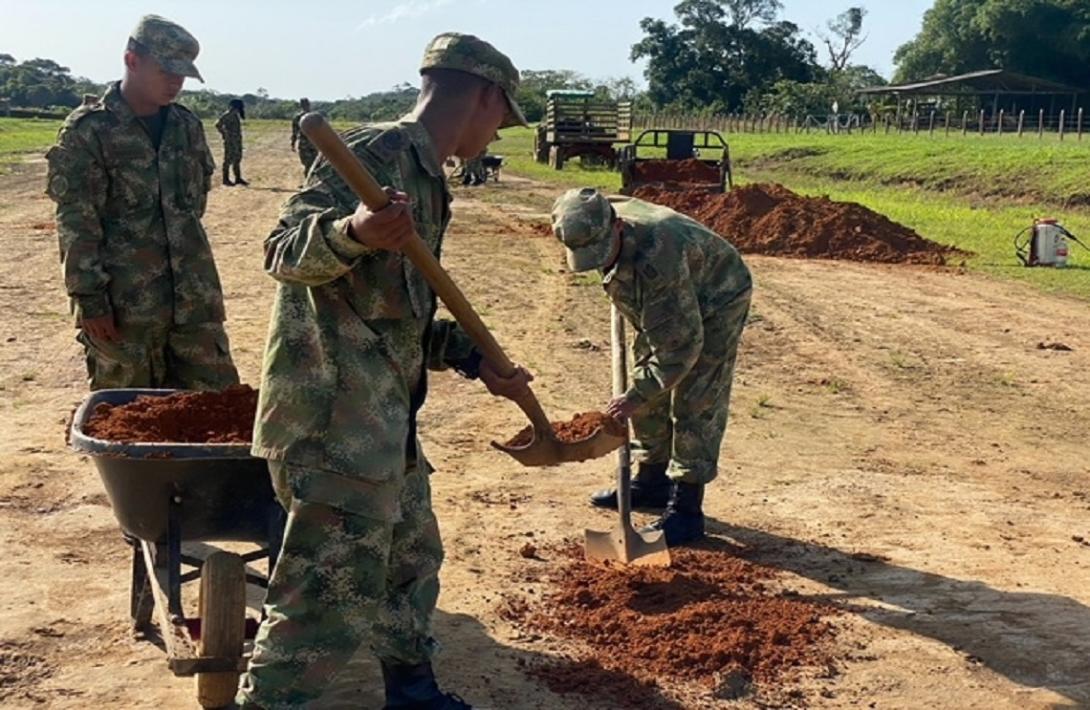The air route is the main mean of transport in the department of Vaupés, this is how the supply of food, health items, supplies and everything necessary to meet the basic needs of the inhabitants of this region is carried out.
The National Army works hand in hand with the community and that is why it knows and contributes to the well-being of the Vaupenses. For instance, there is the case of the airfield that required an urgent repair and our soldiers arrived with shovels, pikes, machinery and above all with the best attitude to adapt this runway and facilitate the landing of cargo and passenger aircraft.
In the department of Vaupés there are 27 indigenous ethnic groups that have made the thick jungle their home, forming hamlets and communities in the middle of it; air and water have become their transport roads, with the air route being the most effective due to the geography of the area.
In this way, the airstrips of the region are strategic assets, since they are the means by which food, elements for health care, among others, enter the different municipalities. This is the case of the municipality of Carurú, which has 3,325 inhabitants, according to the DANE census, and ethnic groups such as Guananos, Cubeos, Piratapuyos, Tarianos, Carapanas, Carijonas, Desanos, Curripacos and Tucanos converge.
That is why soldiers of the National Army, once identified faults on the surface of the airstrip, and in support of the Mayor's Office of Carurú and its inhabitants, with pike and shovel in hand, worked for 21 hours under the inclement sun that covers the region, to compact the terrain and adapt it in such a way that the landing of aircraft is safer.
Lieutenant Colonel Guillermo Alberto Domínguez Giraldo, commander of the Infantry Battalion No.52, expressed: “We are their Army and in addition to ensuring the safety of our compatriots, we in the same way serve the communities with all our Resources for their benefit, this time, with tangible support for our indigenous communities.”
Source: Press - National Army





